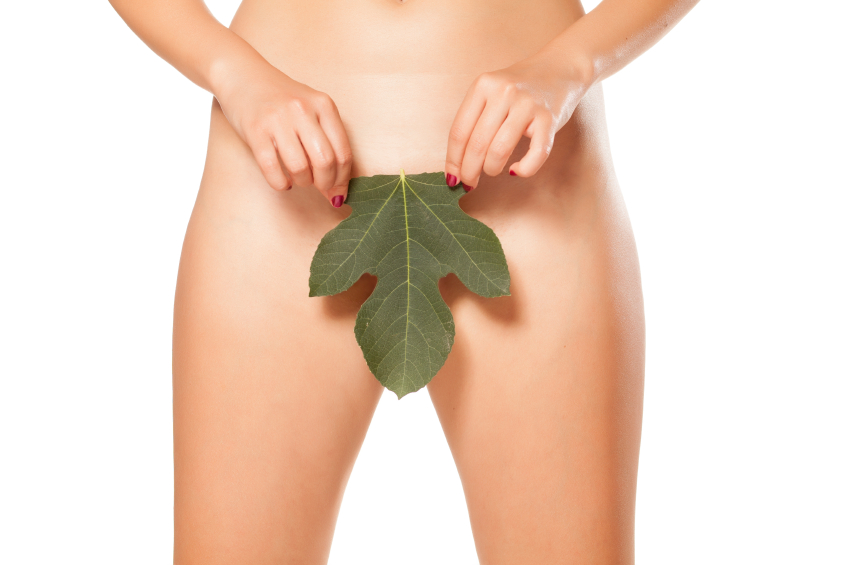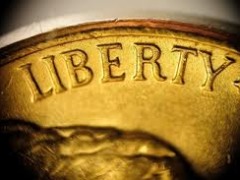Was there sexuality and procreation in the Garden of Eden? The answer may not be as straightforward as you would think.
[This post continues my discussion of why Aquinas holds there was no private property in Paradise. Other topics in the series include in order: 1. No property in Paradise, 2. Life in Paradise, 3. No Labor in Paradise, 4. Sexuality and Procreation in Paradise, 5. The Children of Adam and Eve, 6. Were Adam and Eve Vegetarians? 7. No Equality in Paradise, 8. Subjection and Government in Paradise, 9. Private Property, the Result of Sin, 10. Aquinas’s Analogy: Clothing, Slavery and Private Property. Or download the full essay here: No Property in Paradise: How Aquinas Understands the Origin of Private Property]
Not only did Adam and Eve have ready access to food, but they had no need for clothing. In part, this was due to the mild climate which protected their bodies.[1]ST II-II, 164, ii, ad.8 But it was also because they were unaware of their nakedness (Gen. 2.25). Aquinas understands their innocence and lack of shame as consistent with and resulting from their lack of sexual desire or lust, since the struggle between the sensual appetites of the body and the intellectual parts of the soul arose only after their sin and expulsion from Paradise.
As Aquinas puts it, “But in the state of innocence the inferior appetite was wholly subject to reason: so that in that state the passions of the soul existed only as consequent upon the judgment of reason.” For this reason, “they were naked and not ashamed, there being no inordinate motions of concupiscence—”[2]ST II-II, 164, ii, ad.8; See Ia, 95, i, for the idea that their shame about nakedness arose because they felt the impulse of disobedience in the flesh; on passions not in rebellion against reason in … Continue reading Aquinas is saying that nakedness was not shameful in Paradise because the first parents had neither sexual desire nor lust, even though Eve had been created for the purposes of procreation.[3]On the purpose of Eve’s creation as a help-mate, see ST Ia, 92, i, 2089, and ST Ia, 92, i, ad. 2, 2089 Instead, procreation was based on a rational decision to procreate, without the promptings of sexual desire. Just as eating food was a decision of the rational intellect to care for the health of the body, so too was procreation a rational decision to reproduce.
Aquinas thus rejects the view of those who say there never would have been sexual intercourse in Paradise and that reproduction in the state of innocence would have taken place without sexual intercourse, by the power of God.[4]ST Ia 98, i On the contrary, Aquinas holds that sexual intercourse and procreation were not only possible in Paradise but that Adam and Eve actually had a responsibility in Paradise to have intercourse to reproduce. Otherwise, God would have created a female in vain for no purpose. This is also why Eve is called a “help-mate” to Adam, to help him in procreation, and why God created Eve in the garden of Eden and not later.[5]ST Ia, 98, ii and Ia 98, ii
As things unfolded, however, Adam and Eve didn’t actually have intercourse until after their sin and punishment which is why Scripture only says “Adam knew Eve his wife” after they have been expelled (Gen. 4.1). This delay in having sexual relations, Aquinas speculates, was either because their sins occurred quickly and they didn’t have time for union or because they were awaiting divine instructions as to the timing of their reproduction.[6]ST Ia 98, ii, ad. 2 The delay did not signify that procreation and sexuality were a postlapsarian condition. Had sin not occurred, the first couple would indeed have had sexual relations in Paradise and had offspring.
No Contradiction of Immortality and Procreation
Aquinas does not see a contradiction between the first couple’s immortality and their obligation to procreate, even though he accepts the view that things which are immortal don’t need to procreate. Though it is true that had they not sinned they would have been immortal, and thus there was no need for reproduction to preserve the human species, Aquinas insists they still had an obligation to expand the number of individuals in the species. This obligation arises because of the nature of the human being who is half-corruptible (body) and half-incorruptible (soul). As Aquinas explains, nature endows corruptible things with procreation to reproduce the species. With incorruptible things like the soul, “it is fitting that the multitude of individuals should be the direct purpose of nature, or rather of the Author of nature, Who alone is the Creator of the human soul. Wherefore, to provide for the multiplication of the human race, He established the begetting of offspring even in the state of innocence.”[7]ST Ia, 98, i and ad. 2
The nature of the sexual act in the Garden of Eden
Having established that sexual intercourse would have taken place in the state of innocence had sin not occurred, Aquinas makes clear that the nature of the sexual act at that time would have differed fundamentally from the nature of the act as it exists among humans today. Noting that human beings become like beasts during intercourse, Aquinas contrasts how intercourse would have been different in Paradise. It is worth quoting Aquinas at length:
In the state of innocence nothing of this kind would have happened that was not regulated by reason, not because delight of sense was less, as some say (rather indeed would sensible delight have been the greater in proportion to the greater purity of nature and the greater sensibility of the body), but because the force of concupiscence would not have so inordinately thrown itself into such pleasure, being curbed by reason, whose place it is not to lessen sensual pleasure, but to prevent the force of concupiscence from cleaving to it immoderately. By “immoderately” I mean going beyond the bounds of reason, as a sober person does not take less pleasure in food taken in moderation than the glutton, but his concupiscence lingers less in such pleasures.[8]ST Ia, 98, ii, ad. 3
According to Aquinas, then, Adam and Eve would still have had intense pleasure in sexual intercourse, even more pleasure perhaps than humans today, but their sexual experience would not have dominated their persons and overcome their reason the way it would do so for human beings after the first sin.
Gluttony is to sexuality as…
By way of a telling analogy, Aquinas contrasts the glutton who can’t control the consumption of food with a person who simply enjoys eating a meal but is under control and can start and stop at will. The glutton is like the person having sexual intercourse after Paradise and the moderate eater is like Adam and Eve having sexual relations. They would have enjoyed it intensely even though it was a rational and controlled activity. As Aquinas puts it, “a sober person does not take less pleasure in food taken in moderation than the glutton, but his concupiscence lingers less in such pleasures.”[9]One could argue that Aquinas’s analogy is not perfect since even the sober person experiences hunger which motivates him or her to eat. Aquinas envisions both eating and sexual relations in … Continue reading
Aquinas ties the emerging shame over nakedness not only to sexual desire but to the visual arousal of the lustful body which is what makes nakedness shameful. He thus seems to have in mind, in particular, the unprompted and visible male erection as a symptom of sexual desire that is shameful and should be hidden by clothing. The purpose of clothing was thus to hide the visible signs of unruly sexual desire, which started after the first couple’s sin and reminded them of what they had done.
In Paradise, by contrast, nakedness was not a problem because the climate was mild, the body was protected from accidents, and Adam was not aroused, we surmise, except through a rational decision to procreate. As Aquinas puts it, “Clothing is necessary to man in his present state of unhappiness for two reasons. First, to supply a deficiency in respect of external harm caused by, for instance, extreme heat or cold. Secondly, to hide his ignominy and to cover the shame of those members wherein the rebellion of the flesh against the spirit is most manifest.”[10]ST II-II, 164, ii, ad. 8
Next up: Relationship to Animals in Paradise
References
| ↑1 | ST II-II, 164, ii, ad.8 |
|---|---|
| ↑2 | ST II-II, 164, ii, ad.8; See Ia, 95, i, for the idea that their shame about nakedness arose because they felt the impulse of disobedience in the flesh; on passions not in rebellion against reason in the state of innocence, see ST Ia, 95, ii, ad. 1, and again II-II, 162, i; “the lower faculties in man were subject to the higher, and were no impediment to their action” (ST Ia, 94, iv); so in bearing and conceiving the union of both sexes would be one not of lustful desire but of deliberate action” ST II-II, 163, ii |
| ↑3 | On the purpose of Eve’s creation as a help-mate, see ST Ia, 92, i, 2089, and ST Ia, 92, i, ad. 2, 2089 |
| ↑4 | ST Ia 98, i |
| ↑5 | ST Ia, 98, ii and Ia 98, ii |
| ↑6 | ST Ia 98, ii, ad. 2 |
| ↑7 | ST Ia, 98, i and ad. 2 |
| ↑8 | ST Ia, 98, ii, ad. 3 |
| ↑9 | One could argue that Aquinas’s analogy is not perfect since even the sober person experiences hunger which motivates him or her to eat. Aquinas envisions both eating and sexual relations in Paradise more like a rational choice with no internal prompting or at least no prompting that cannot be rationally controlled. |
| ↑10 | ST II-II, 164, ii, ad. 8 |




